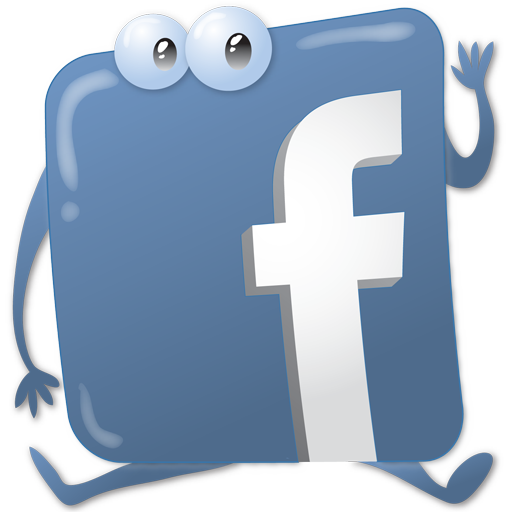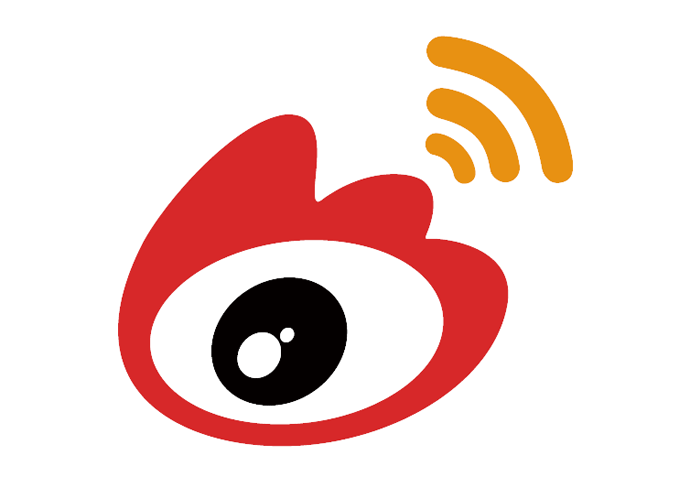The Body's Internal Clock: The Human Body and Sleep
It is a well-known fact that there's a sound mind in a sound body. We are very much dependent on the functions of the organs of our body for better living. Sleeping is always important; it gives mental as well as physical rest. In order to lead a normal life without any disease you must eat three times a day and should sleep at least for 6 hours. A study conducted by a Canadian professor proves that Obesity will be found only in persons who sleep less in night. Dr. Shahrad Taheri said: "Individuals who spent less than eight hours sleeping were shown to have a greater likelihood of being heavier."Researchers from Northwestern University and Evanston Northwestern Healthcare (ENH) have pinpointed that "The body clock regulates the time we go to bed, the time we get up and the time we get hungry ". Eating less or more than the required,eating in odd time will also affect your health by and large. We should practice ourselves in such a way that we should take our food in particular timings. So why we are insisted that we should sleep for 6 hours,should wake up early,should eat in proper timings?. The reason is our body organs will perform their functions only in some particular time.We have to adjust for those timings.
9 P.M-11.00 P.M:
This is the time for the Immunity System. The antibodies will start to function.It will try to remove the excess unwanted chemicals we had during the day time. So it will be better to go for a sleep in this time. If you feel that the time is too early,then just do any meditation or listen to music. People who wont take rest or work during this time will sure tend to loose the energy of antibodies to fight against diseases.
11.00 P.M-3.00 A.M:
Till 1.00 A.M it will be Liver's time. In order to avoid liver related
diseases it is better to go for sleep in this time. Further it is the
best time to have deep sleep.After 1.00 A.M till 3.00 A.M spleen will
start its duties and do the cleaning process.
3.00 A.M-5.00 A.M:
Now it is the time for Lungs to do its function.It will purify the internal parts of the body that is affected by various pollution,chemical hazards etc. If you are suffering from Cough or Cold then you will feel difficult during this time because of the functioning of lungs. A medical report says that a deep sleep at this time will be a good dose of medicine for Cough.
5.00A.M-7.00 A.M:
Large Intestine's time is early morning.It will be better to avoid eating at this time. But if you somehow cant able to manage avoid eating then it will be good if you drink water. But is advisable to have empty stomach at this time. If you eat anything continuously at this time frame then you are prone to more stomach upset related symptoms and hence eventually leads to digestion problems.
7.00 A.M-9.00 A.M:
Small intestine will absorb the nutrients needed for the functioning of the body in this time. It is nothing but breakfast time. Take your breakfast in this time to have a hale and healthy body. Don't skip your breakfast.
If you sleep late and if you wake up late then the normal functioning of the organs are affected and hence the natural process of elimination of unwanted particles. Further the blood cells are produced from the bone marrow only during the night time of our sleep. So for production and proper circulation of blood we depend on our sleep.
Try to follow some routine pattern in your sleeping, and enjoy your life.
SOURCES:
www.sleepdex.org
www.sciencedaily.com http://www.northwestern.edu/
3.00 A.M-5.00 A.M:
Now it is the time for Lungs to do its function.It will purify the internal parts of the body that is affected by various pollution,chemical hazards etc. If you are suffering from Cough or Cold then you will feel difficult during this time because of the functioning of lungs. A medical report says that a deep sleep at this time will be a good dose of medicine for Cough.
5.00A.M-7.00 A.M:
Large Intestine's time is early morning.It will be better to avoid eating at this time. But if you somehow cant able to manage avoid eating then it will be good if you drink water. But is advisable to have empty stomach at this time. If you eat anything continuously at this time frame then you are prone to more stomach upset related symptoms and hence eventually leads to digestion problems.
7.00 A.M-9.00 A.M:
Small intestine will absorb the nutrients needed for the functioning of the body in this time. It is nothing but breakfast time. Take your breakfast in this time to have a hale and healthy body. Don't skip your breakfast.
If you sleep late and if you wake up late then the normal functioning of the organs are affected and hence the natural process of elimination of unwanted particles. Further the blood cells are produced from the bone marrow only during the night time of our sleep. So for production and proper circulation of blood we depend on our sleep.
Try to follow some routine pattern in your sleeping, and enjoy your life.
SOURCES:
www.sleepdex.org
www.sciencedaily.com http://www.northwestern.edu/
Body Clock

12 Important Human Body Organs and their peak timings: Lungs, Intestines, Stomach, Spleen. There are 12 important organs in our body, which will be at its peak for two hours a day. Normal health or disease of any person depends on this factor. To lead a healthy life, one should learn one's own body functioning language.
1. Organ
Lungs
Time
Early Morning (3AM-5AM)
Remarks
It is good to wake up at this hour. The Ozone content in atmosphere will be more at this time, which will give a new lease of energy if we practice breathing exercise, Yogasanas and meditation. Asthma patient cannot sleep in this time and will suffer breathlessness.
2.Organ
Large Intestine
Time
Morning (5AM-7AM)
Remarks
If a person gets up in this time will not have constipation problem. If bowel's movement and taking bath in cold water are done during this time, then he will not have any nervous debility.
3.Organ
Stomach
Time
Morning(7AM-9AM)
Remarks
Breakfast should be completed during this time.
4.Organ
Spleen
Time
Morning (9AM-11AM)
Remarks
It is better to avoid eating. Not even a drop of Water. If food is taken in this time, it will increase body temperature, tiredness will increase and digestion power will come down. Particularly diabetic patient will suffer from palpitation, drowsiness etc.

5.Organ
Heart
Time
Noon (11AM-1PM)
Remarks
Only water can be taken at this time. One shall neither do any hard work nor sleep at this time. Otherwise more Carbon dioxide will get mixed with oxygen and chances of getting heart attack or paralytic attack or body pain are likely. Generally doctors will be on double alert in hospitals during this time because heart and diabetic patients may get heart attack during this time compared to other hours.
6.Organ
Small Intestine
Time
Mid Day (1PM-3PM)
Remarks
After taking lunch, 5 minutes of rest can be taken just by closing eyes. Sleep shall be avoided.
7. Organ
Urinary Bladder
Time
Afternoon(3PM-5PM)
Remarks
It is the right time for milk, juices, etc.
8.Organ
Kidney
Time
Evening (5PM-7PM)
Remarks
This is the time to relax from routine work otherwise renal failure or urinary infection may trouble.
9.Organ
Heart Wall
Time
Night (7PM-9PM)
Remarks
Supper should have been completed during this hour. Otherwise palpitation or chest pain may arise.
10.Organ
Warmer
Time
Late Night (9PM-11PM) Temperature
Remarks
This is the time to recharge the organs that worked since morning. So one shall go down to sleep and avoid reading books, watching TV or working with office files.
11.Oragn
Gall Bladder
Time
Mid Night (1PM-1AM)
Remarks
One must sleep during this time otherwise one will not have any energy for next day work.
12.Organ
Liver
Time
Too early morning(1AM-3AM)
Remarks:
This is the time for deep sleep. Otherwise it will affect eyesight and body irritation.
Living in accordance with the above listed clock of organs enhanced with Yogasanas will illuminate colour and health. This has been prescribed in Yogasastra.

Description: 12
Important Human Body Organs and their peak timings
What do our Lungs do?
Our lungs do a vital job. Each day, we take about 23,000 breaths, which bring almost 10,000 quarts of air into our lungs. The air that we breath in contains several gases, including oxygen, that our cells need to function. With each breath, our lungs add fresh oxygen to your blood, which then carries it to our cells. The main function of our lungs is respiration.
Major function of Intestines:
The small and large intestines perform different functions. The small intestine is where the most extensive part of digestion occurs. Most food products are absorbed in the small intestine. The large intestine is responsible for absorption of water and excretion of solid waste material. Food and waste material are moved along the length of the intestine by rhythmic contractions of intestinal muscles; these contractions are called peristaltic movements. Waste is solid because most of the water has been removed by the intestines as it travels through them.
What is the stomach?
The stomach is an organ of digestion. It has a saclike shape and is located between the esophagus and the intestines. The human stomach is a muscular, elastic, pear-shaped bag, lying crosswise in the abdominal cavity beneath the diaphragm. It changes size and shape according to is position of the body and the amount of food inside. The stomach is about 12 inches (30.5 cm) long and is 6 inches. (15.2 cm) wide at its widest
point. The stomach's capacity is about 1 qt (0.94 liters) in an adult.
Food enters the stomach from the esophagus. The connection between the stomach and the esophagus is called the cardiac sphincter. The cardiac sphincter prevents food from passing back to the esophagus. Heart burn is the sensation when stomach juices (gastric juice) is allowed to seep through the sphincter into the esophagus. Once the food enters the stomach, gastric juices are used to break down the food. Some substances are absorbed muscle lining of the stomach. One of the substances the stomach absorbs is alcohol.
The other end of the stomach empties into the duodenum. The duodenum is the first section of the small intestine. The pyloric sphincter separates the stomach from the duodenum.

What is the Spleen?
The human spleen is an organ that creates lymphocytes for the destruction and recycling of old red-blood cells. The spleen is also a blood reservoir. It supplies the body with blood in emergencies such as a
bad cut. The spleen is also the location where white blood cells trap organisms.
The spleen is shaped like a loose fist and is tucked under the left side of the diaphragm.
The average weight of an adult spleen is 0.44 lbs. During and after digestion, the size of the spleen increases. Infection of malaria or mono can also cause the spleen to increase in size.
If the increase in size is significant, the spleen can rupture. If the spleen ruptures, immediate medical care is necessary. You may need emergency surgery to control the bleeding.
Major Functions of Urinary Bladder:
The urinary bladder is the organ that collects urine excreted by the kidneys before disposal by urination. Nerves in the urinary bladder tell you when it is time to urinate (empty your bladder). As the urinary bladder first fills with urine, you may notice a feeling that you need to urinate. The sensation to urinate becomes stronger as the urinary bladder continues to fill and reaches its limit. At that point, nerves from the urinary bladder send a message to the brain that the urinary bladder is full, and your urge to empty your urinary bladder intensifies.
When you urinate, the brain signals the urinary bladder muscles to tighten, squeezing urine out of the urinary bladder.
Major Functions of Kidney:
Kidneys have a couple of different functions. The main purpose of the kidney is to separate urea, mineral salts, toxins, and other waste products from the blood. The kidneys also conserve water, salts and electrolytes. At least one kidney must function properly for life to be maintained.
Major Functions of Gall Bladder:
The function of the gallbladder is to store bile and concentrate. Bile is a digestive liquid continually secreted by the liver. The bile emulsifies fats and neutralizes acids in partly digested food. A muscular valve in the common bile duct opens and the bile flows from the gallbladder into the cystic duct, along the common bile duct, and into the duodenum (part of the small intestine).
Some of the functions of our Liver are:
To produce substances that break down fats, convert glucose to glycogen, produce urea (the main substance of urine), make certain amino acids (the building blocks of proteins), filter harmful substances from the blood (such as alcohol), storage of vitamins and minerals (vitamins A, D, K and B12) and maintain a proper level or glucose in the blood. The liver is also responsible for producing cholesterol. It produces about 80% of the cholesterol in our body.
Our body has an built clock. It is called Circadian clock and it is programmed to carry out the following functions. Since we do not schedule our activities and the frequent travellers also cross from one time zone to another, this clock knows how to adjust as easily as you adjust your wrist watch to the new time, provided you cooperate with it. Circadian clock also can be programmed to wake you up at a particular time and it is more reliable than the human clock.






沒有留言:
張貼留言